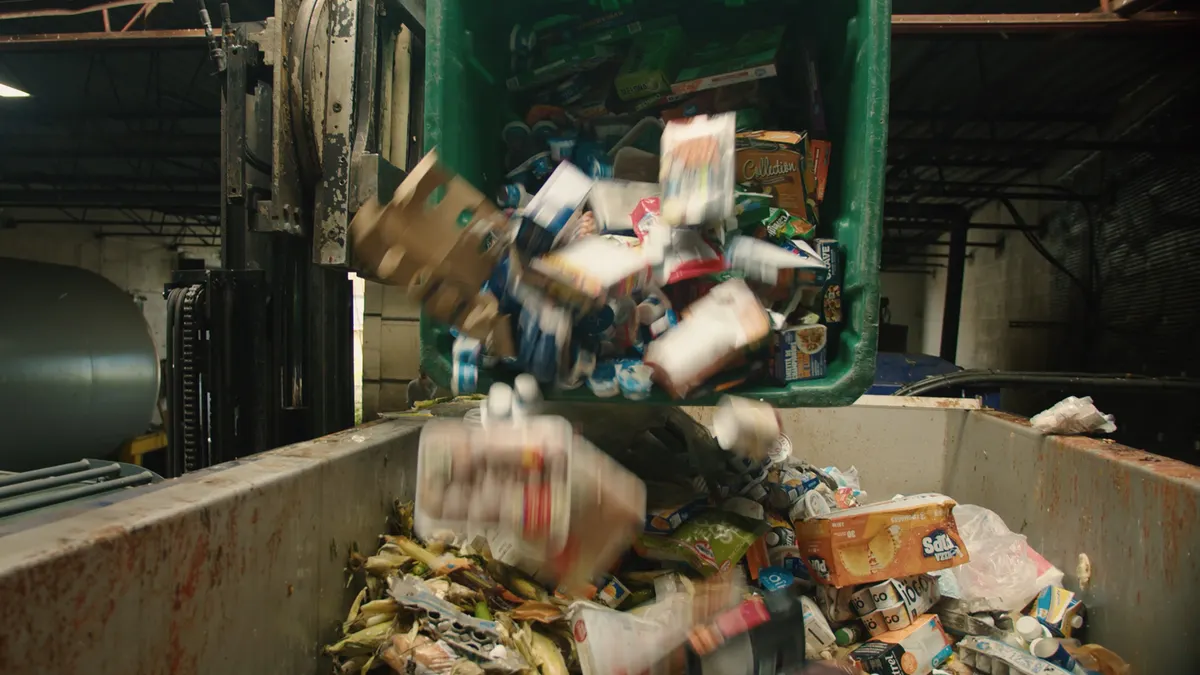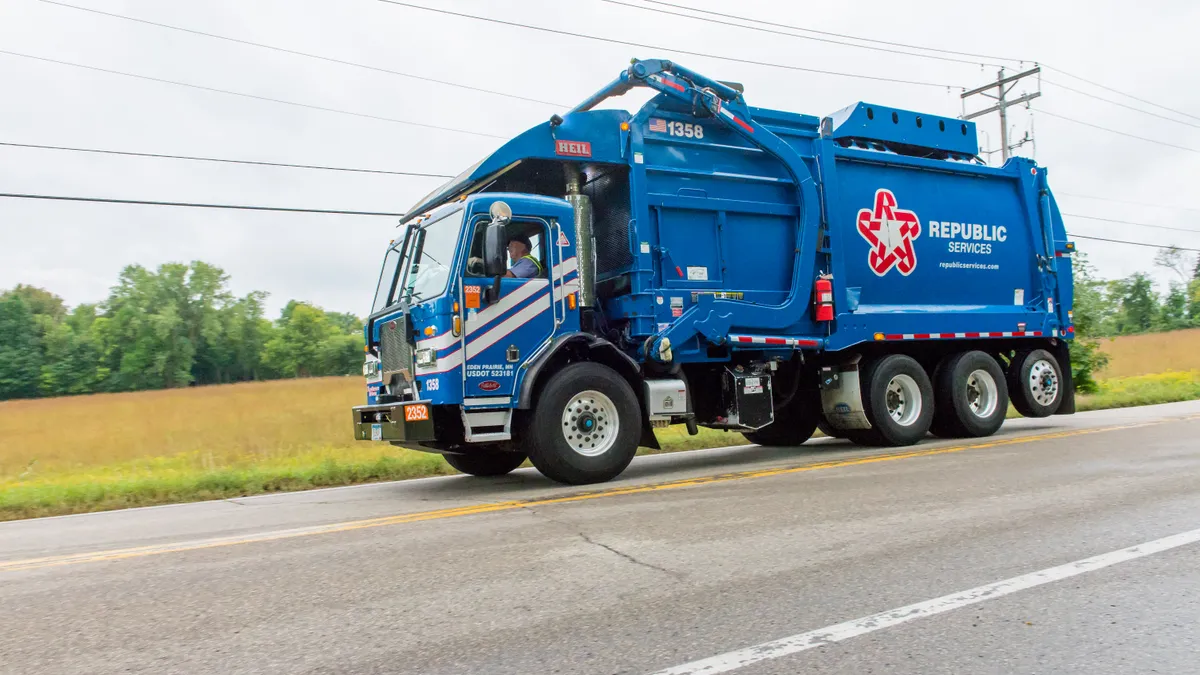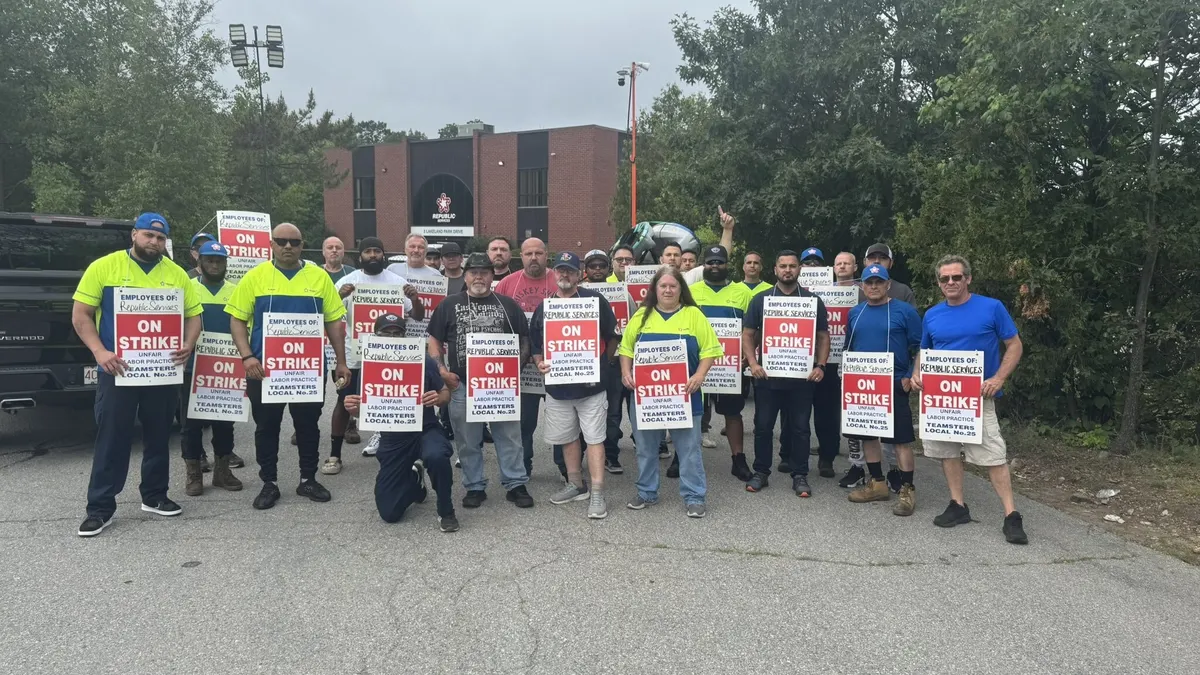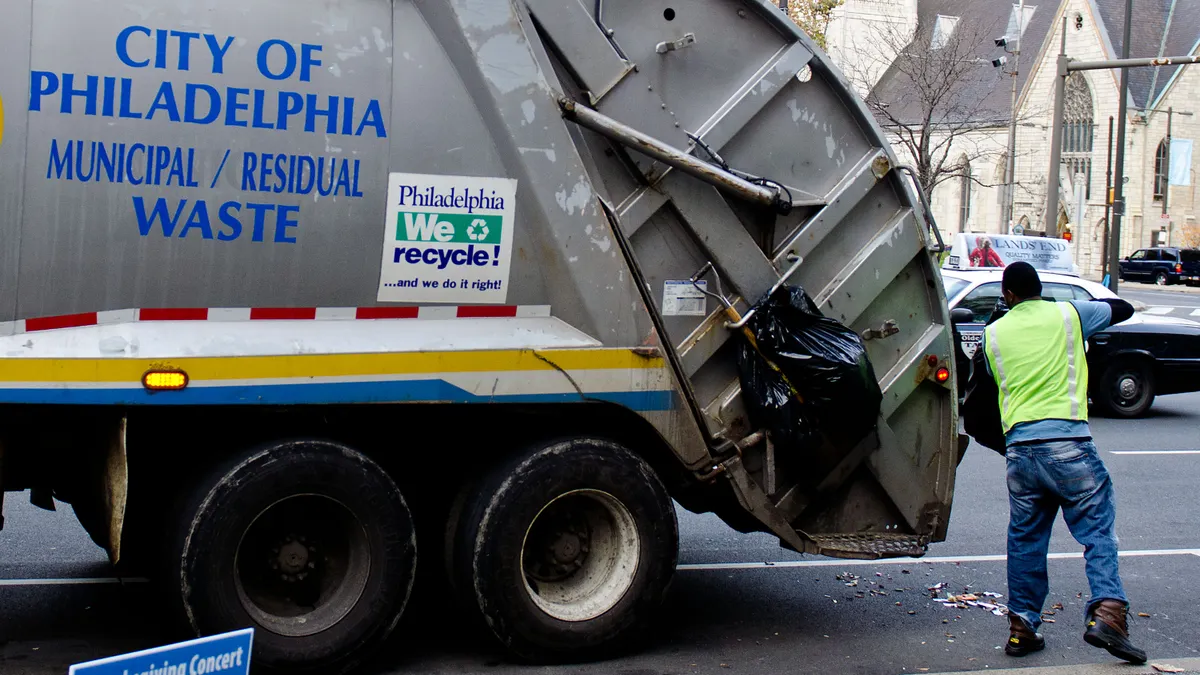China's changing import policies have continued to disrupt recycling operations in the United States, even though news coming from the Chinese government has been relatively quiet recently. That doesn't mean, however, that the wheels have stopped turning.
In a Leadership Update from the Institute of Scrap Recycling Industries (ISRI), Chair Mark Lewon and President Robin Wiener detailed the organization's latest trip to China.
While overseas, ISRI officials met with representatives of the Chinese government and briefed a working group of officials from the U.S., UK, European Union, Australian, New Zealand and Japanese embassies to coordinate a strategy for working with the Chinese government.
From their meetings, Lewon and Wiener said, in their letter to ISRI members, there may be little understanding in the Chinese government about the level of disruption to global supply chains that the new regulations could cause.
For example, because of the speed the new regulations are coming on board, certain agencies or ministries within China's government may not be prepared for full implementation. Because of this, inspections may vary between different Chinese ports and inspectors.
They also made clear that new regulations and environmental controls aren't being applied only to the waste industry. Chinese officials realize, the letter said, that their country is facing an environmental crisis and are targeting recycling, agriculture, coal, oil and other industries to make their country cleaner.
There have been some signs that Chinese officials are listening to what ISRI and other organizations are saying about the implementation, which may have helped lead to the slight loosening of contamination standards last month. While this is seen as a positive, there is some worry that Chinese disruption may not be the end.
This is President Xi Jinping and his government recognizing they have a severe environmental crisis and they have to do everything possible to turn that around. And solid waste management is a part of that.

Adina Renee Adler
Senior Director of International Relations & International Affairs, ISRI
"[W]e are concerned that what China is doing may set off a wave of copycat rules in other countries, so it is in all of our best interested to go above and beyond — to demonstrate our industry's commitment to responsible recycling..." Lewon and Wiener wrote.
Looking forward, ISRI plans to submit more comments to the World Trade Organization, and making a commitment to "responsible recycling" the focus of the ISRI Board meeting in Washington, D.C. next month. ISRI is asking members to join the discussion in order to develop a "more comprehensive and forward looking strategy" for the industry.
Other industry groups have been pushing on the topic, too. David Biderman, CEO of the Solid Waste Association of North America (SWANA), said in an email his organization is encouraged that Chinese officials met with ISRI, but "continues to be concerned with the speed with which China is moving ahead and implementing these changes."
"Last week, while ISRI's leadership was in China, I spoke at a CalRecycle event about the Chinese import restrictions and was in frequent contact with American and Canadian governmental officials about the impact of these restrictions on recycling programs and operations in the United States and Canada," Biderman wrote.
Additionally, the Bureau of International Recycling (BIR) said in recent statement that it was supportive of China's mission to protect human health and the environment, but highlighted the need to differentiate between foreign garbage and processed scrap.
"BIR requests that the Chinese Government re-defines 'carried wastes' in each of these GB Standards so as not to include materials that may be separated and recycled," the statement reads. "'Carried wastes' should be defined as wastes which are only fit for landfill or incineration."
To unpack the latest from ISRI and to get a sense of how things are developing in China, Waste Dive spoke with Adina Renee Adler, senior director of international relations & international affairs for the organization.
The following interview has been edited and condensed for clarity and brevity.
WASTE DIVE: Were you able to gain any understanding of the motivating factors of why China is implementing these policies?
ADINA RENEE ADLER: It was an interesting eye opener for us, in that it's pretty clear, and it was clear from all of our conversations with everybody that we met with, that we know the Chinese government has a number one priority, and that is the environment. It is all about the environment. The economy and industrial policy, while important, is actually a distant second.
This is President Xi Jinping and his government recognizing they have a severe environmental crisis and they have to do everything possible to turn that around. And solid waste management is a part of that. Not only do they have to do whatever is necessary, it needs to be done as quickly as possibly.
What's the current state of things going into enforcement, if it's being done as quickly as possible?
ADLER: It's also apparent [President Xi has] given the directive, and the officials are doing what they can to implement the directive, but I think there is ... a tacit understanding that they may not be completely ready. We have come back and told our members that they need to be prepared for disruption in normal business activity.
We are suggesting to our members that they go above and beyond and make sure the material is clean. And really work under the expectation that there could be rejections. Not because [exporters] didn't do everything within their power to make the material clean, but it's just because there is going to be discrepancies in the interpretations of the rules by the various officials.
If there is some feeling or thought that parts of the government might not be ready, does that mean there might be a delay in implementation?
ADLER: We don’t know whether or not they're going to delay it. They're under a tremendous amount of pressure to get this done as soon as possible. One of the impressions that we’ve come back with from all of these meetings is how we need to approach these issues with the Chinese government. Talking through industry concerns or talking through, just in general, what it is to process recyclable commodities. We are working on comments that we will submit to the WTO in response to those notifications. The approach that we will take is to constructively share information about the industry and how recycling works, and the ability or inability to meet certain standard levels, in the hope that this constructive approach could potentially be heard.
Will that work? Have Chinese officials been responsive to comments?
ADLER: We do think they are listening. We do think that all the various rounds of comments that ISRI has submitted thus far have been received and analyzed and looked at, and even to some extent implemented. We hope that submitting more comments might potentially result in a set of policies that are aligned with global practice.
Without the clear carried waste definition from China, what is there really that exporters can do?
ADLER: We know that fundamentally [China doesn't] want trash. That’s number one. That I think is something, and I don't want to say it's easy, but its kind of a relatively easy first step, which is keep all the obvious trash out. To the extent that you have a bale of aluminum cans, and you see a little plastic bag sticking out, remove it.
[Exporters] also could think about how material is loaded into containers or into the baler. There are some materials that are dug up with a bulldozer. So think about that. They take a bulldozer and they push the material into the container. Well that bulldozer is inevitably picking up earth and rocks and dirt. Is there another way? Is there another way to load the container without picking up the earth and the rocks and the dirt.
I know the inspectors require photographs. Let's say it's like they require six photographs. Maybe send them 12, where it shows them every angle of the container, it shows clean floors, clean doors, clean loading, it just shows that you are kind of going above and beyond.
What can be done more long-term?
ADLER: I think it's our hope that we can revise the threshold numbers to be more in line with standard recycling practice. But let's work under the assumption that they won't be changed. Then each individual company will have to think about whats best for them.
Is it a new business model? Is it investments? Is it finding new markets. Is it finding other partnership? There's just so many different ways that companies can adapt. ISRI does plan to make sure that members understand that we have resources to help them to adapt to those regulations.
Are there concerns that other countries develop similarly strict import restrictions?
ADLER: I don't want to call out anything in particular, but we have heard through our members and through our networks of a couple of governments who are starting to express concern, or think about waste in their scrap import. There is is actual, credible information coming out of some places. And then it is the latter, what you said, just the general concern that it could happen. We do have reports of some recycling, some processing moving to Southeast Asia. That's a viable market for now, but how will those governments potentially react and deal with that in the future?


















